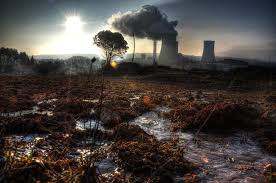Climate change is a major global issue today. Every country is realizing it and is setting goals to find solutions which can help mitigate its impacts. Level of greenhouse gases has gone up and down over the history of Earth, but they had stayed constant for the past few thousand years.
Global average temperature has also stayed constant over that time until the past 150 years. Due to the industrial revolution and discovery of fossil fuels the concentration of greenhouse gases in the atmosphere has gone up considerably. These greenhouse gases entrap the solar heat and make the planet warmer. Scientists are confident that global temperatures will continue to rise for the decades to come, major contributors would be greenhouse gases produced due to human activities.
The Intergovernmental Panel on climate Change (IPCC) forecasts a temperature rise of 2.5-10 degree Fahrenheit over the next century. Greenhouse gases which cause the global warming include carbon dioxide, methane and nitrous oxide. However carbon dioxide is the major contributor which is majorly produced by industries and transportation.
Global warming has led to cascading of climate changes which every individual is experiencing today. These changes are so extreme and destructive that if we don’t stop now the doom of this planet is inevitable. Global climate is going to continue changing over the next century and the magnitude of change depends on greenhouse gas emissions produced. Future of this planet is in the hands of humans now, how we approach the problem will decide the fate of this planet.
n the past few decades climate change has shown drastic consequences. Average global sea level has increased eight inches since 1880 and is rising at a much faster rate due to global warming. The risk of flooding of low-lying and coastal communities due to rising sea level is increasing by the day. The ice at the poles which is thousands of years old is now melting at an alarming rate causing glacial regression, snow melting, flooding in the rivers and lakes, coastal erosion, sea level rise and extreme natural phenomena. Droughts in different regions of the world have created water scarcity and climate change is one of the reasons responsible for it. Water use has been growing globally at more than twice the rate of population increase in the last century. Water scarcity will be aggravated as rapidly growing urban areas place heavy pressure on neighboring water resources. There are over 2 billion people living in countries experiencing high water stress. According to Global Water Institute 2013 about 700 million people worldwide could be displaced by intense water scarcity by 2030.
In the past decade scientists have been observing signs of change all over the planet: in the distribution of ice and in the salinity levels and temperatures of the oceans. Everywhere on earth ice is changing. The snows of Kilimanjaro melted more than 80 percent since 1912. Researchers believe that most central and eastern Himalayan glaciers could virtually disappear by 2035. Arctic sea has thinned significantly over the past few decades. The edges of Greenland’s ice sheets are shrinking. From Arctic to Peru, from Switzerland to the equatorial glaciers of Man Jaya in Indonesia, massive ice fields, monstrous glaciers and sea ice are disappearing fast. Increase in wildfires is also the consequence of global warming. It leads to the loss of life, property and destruction of flora and fauna. As global warming has led to various climate changes, change in precipitation levels is one of them. Wet areas are becoming wetter and dry areas are becoming drier, making forests prone to more wildfire incidents. Damage to the crops and food production is other impact of climate change. Untimely rains or no rains at all are making it hard to grow crops in various regions of the world. Global food security relies on both sufficient food production and food access, and currently it is at risk. Climate change is also affecting human health. Extreme weather events and changing climate are yet hard to adapt. These events are making human health more vulnerable to exposures and other diseases like Cholera, Tuberculosis and Yellow fever etc.
India has also been the first hand victim of climate change. It is already experiencing a heat spell and rise in temperature. Global temperature rise will make India’s summer monsoon highly unpredictable. Crop yields are expected to fall significantly because of extreme heat by the 2040s. India is highly dependent on groundwater, more than 60% of agriculture is rain fed and with increase in droughts it will be impossible to meet that demand. Most of the Himalayan glaciers have been retreating over the past century. Water scarcity is one of the major issues in India today and several cities have been affected by this problem. Although climate change is not the major cause for that, however it will have its impact in the future. These are few of the impacts of climate change faced by India today and the list goes on. Nonetheless we are still not taking the issue seriously.
The menace of climate change has not even spared the vale of Kashmir. In 2016 the valley witnessed its lowest rainfall in 14 years. Increase in winter temperatures and dry winters are becoming worrisome, it leads to lesser snowfall and a thinning snow cover. Higher summer temperatures are causing glaciers to melt at a much faster rate and increasing the risk of floods in plains. The impact of climate change is shrinking our glaciers and drastically reducing glacial resources.
Multiple bodies and non-profit organizations international, national and regional have been working towards the goal of saving the planet and mitigating the impacts of climate change. United Nations Environment Program (UNEP) is the leading UN organization which is known for assessing global, regional and national environmental conditions and trends. World Meteorological Organization (WMO) is another body whose cornerstones are weather, climate and water. Intergovernmental Panel for Climate Change (IPCC), created by WMO in partnership with UNEP, is the leading international body related to climate change research. The mission of IPCC is to provide scientific assessments on climate change impacts, future risks, adaption and mitigation options.
All the goals set by UN and other bodies for bettering environment are meaningless, unless every individual doesn’t understand the risks we prone to and the necessity of these goals. It is high time we start changing our lifestyles, and switch to more sustainable alternatives. It is impossible for governments and other organizations to make any change unless there is change at the individual level. We need to find alternatives for the substances and activities which are harmful to environment. Every community needs to set their own goals, start changing their surroundings and eventually that will lead to changes at global level. We are the last generation that can take steps to avoid worst impacts of climate change. We will be judged by future generations for the decisions we make in this crucial time. It is the collective effort which is going to show some results.
Cambay Mohmmad Adeel





